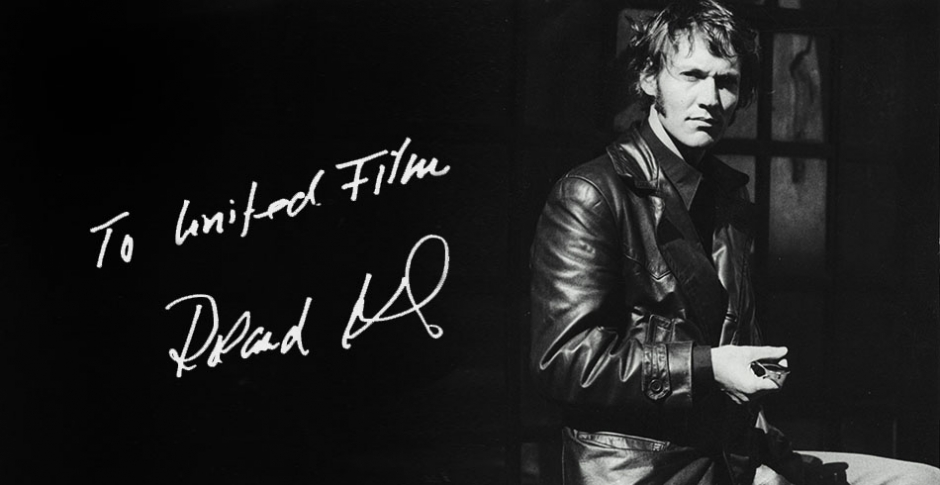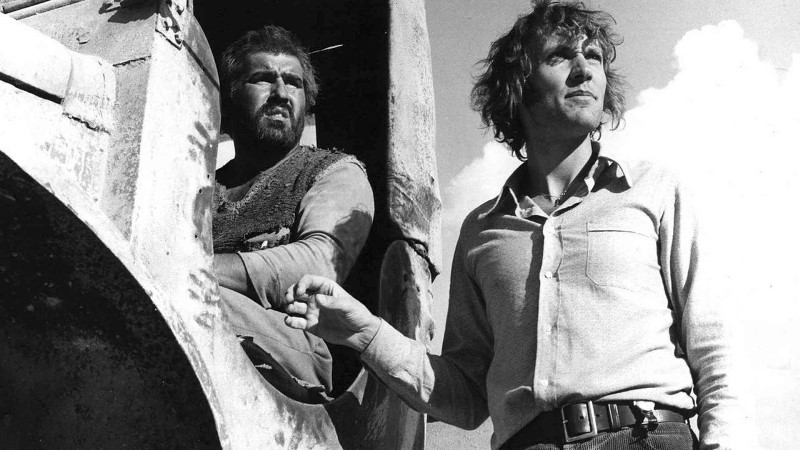Roland Klick - I was film version of punk rocker, honest, myself and fucked the system
Written by Eva Csölleová, Vítek FormánekGerman director Roland Klick (1939) was a guest at Letní filmová škola in Uherské Hradiště. Very interesting person who wrote scripts for films he directed, he also edited them, produced and composed music for some of them. His filmography is not long, only six films, but unlike other directors he managed to shut the door behind him when German Film Institute let him down and moved on in his life.
You were born just at the outbreak of WWII. Did the war atrocities leave some deep impact and sad memories in you, which you tried to transfer into your films, like it happened to Paul Verhoeven?
No, not at all. I was living in Aš, which, as you know, is at the border between Czechoslovakia and Germany. My father was a doctor and he worked in a small hospital behind the borders so he commuted from Aš to Germany every day. There was not a single bomb and basically I didn´t even notice there was any war. Probably just one or two night there was a siren but that was all. We were Sudet Germans so after the war we were thrown out of Czechoslovakia and we had nothing, just few suitcases with personal things and ended up in Bavaria. My father was in Wehrmacht and he was sent to Stalingrad but luckily for him, he was wounded before that so he didn´t go there and survived. Otherwise he would have been either killed, or would have died in the Stalin´s Gulags. After the war, Czechs sent him to jail for two years but he escaped. Me, my brother and mother were living in small village in Bavaria and one day I was looking out of the window and there he stood. He was a doctor and had some privileges which he used for his escape, it was in 1947, before communist coup´d etat. Over the years, I saw many documents about Stalingrad and saw all that horrors and realized how lucky my father was.
What led you to become a cinematographer and director? Was it your life ambition and dream since childhood or some deep experience turned you into film?
Yes, it was my dream since my childhood. I was about twelve when I told this to my parents. At that time being a director was close to being a Pope but since you couldn´t say you want to be a Pope I said I want to be a director. We were living in Aš where they even didn´t know what film was. But funny thing is I still wanted to be a film director. I think I was about twelve when I saw my first film.
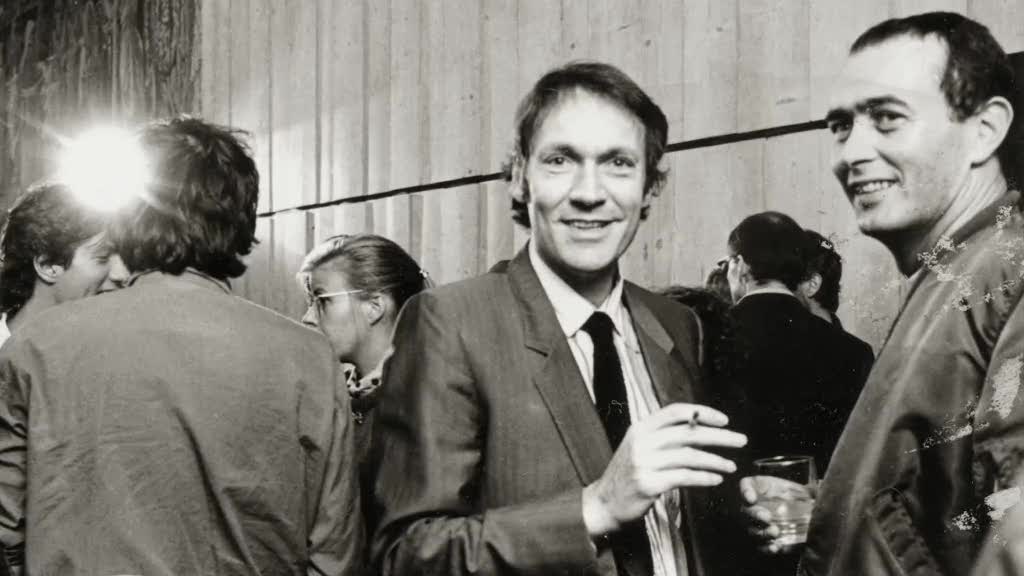
So what was THAT thing that turned you into film?
I tell you something. I am an artist who is good but not a world class. I am good musician, can play guitar but am not a world class. I am good at painting, had lots of exhibitions but I am not a Picasso. So I thought I have all these talents which are needed for the film. Film is picture, music is a voice, I was good in dialogue so I thought I have all things required for the film and I am good for that job.
What was German cinematography in later 50´s and early 60´s? Were there any aspects from French new wave methods or state financed cinematography wanted different missions showed in film?
I don´t like so called “Young German film”. They tried to bring something from new wave but didn´t succeed. It was just great fuck. They had some missions but it was all intellectual. My films were sensual, it came from heart, soul and brain, it was all about life, expressing real life.
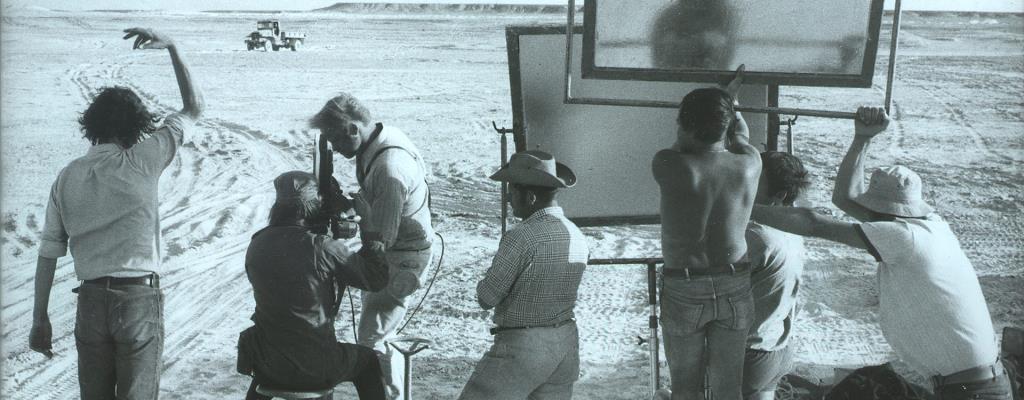
Your film Deadlock was filmed in no man´s land between Jordan and Israel after war in 1967. Did you deliberately go there despite danger and tension or you planned to film there and didn´t want to give up your plans despite the war?
I was driving my jeep everywhere and found my deadlock there so I decided I am gonna make that film anyway. Of course people told me I am crazy and there is a war and they will shoot me.
Did you have any threats from either fighting side and they demanded your money or something like that?
No, nothing at all Actors maybe were scarred but I kicked them in the ass, that´s film directing, you know.
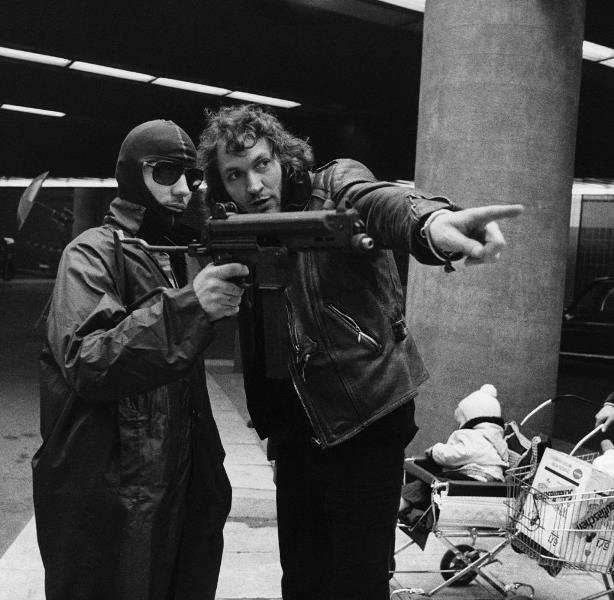 It is said that after the success of Deadlock you were offered some deal from Hollywood even from Steven Spielberg but you declined them? Why?
It is said that after the success of Deadlock you were offered some deal from Hollywood even from Steven Spielberg but you declined them? Why?
I don´t remember much about that, even not the fact if it was Spielberg or not, since at that time he was nobody yet, but I got lots of offers from Hollywood and Italy and I told them, I am interested but only if they give me a good story which they didn´t. I like to change things and move but probably they expected me to film another two or three Deadlocks. I knew that privately I have to develop and not stay at one place. That was important for me because I wanted to become a perfect human being and not just perfect director. After that I made a film Supermarket and as you know it is totally different story and scenery. That film was my private story. I had a guy like that in my flat for over a year and tried to make him a good human being. In fact the guy who played the friend of main character is real guy whom I offered a flat.
In your film White Star, you had Dennis Hopper who was having problems with cocaine. Did you tell yourself “Thankfully I didn´t go to Hollywood since I would have to deal with tens of such people”?
Ha,ha, no I didn´t say that but he was very difficult to deal with. He was in his peak of cocaine addiction and he didn´t do what I wanted, he didn´t remember lines and he was able to work only two hours a day. I was warned by many people about him, but I had a smell he was good for that job.
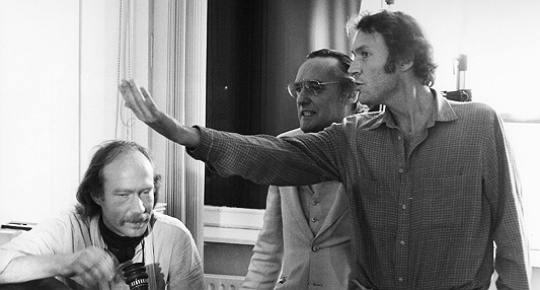 Did it came to the point when you told him” Dennis, one more time and you are fired”?
Did it came to the point when you told him” Dennis, one more time and you are fired”?
You can´t fire leading character when you are also a producer of the film, you would bankrupt.
Your film debut Bübchen was criticized both by public and the media. Did you realize that your methods and views are so special that they even differ very much from general public or you deliberately chose provocative topic but didn´t expect such violent reaction?
The public was always on my side which I always intended to. Film is always screened to public and public watched it, smelled it, laughed it. So called “Young German film” looked down at ordinary people, with disdain, they though you have to make films for intellectuals and newspapers. And from beginning I was an outsider, because I said NO.I was marked as a rebel.
How do you explain that your films had problems with realization, distribution and acceptance but as the time went, they became kind of iconic and you became legend despite making only 6 films in 20 years?
It´s my fate, my God decided that. You know there is always one thing in my life and that is I am always honest, to myself, my partners or in my films. I knew that is only way of living. I was criticized by press and didn´t have immediate success but that was my fate, my way of making films so what a fuck? I could wake up in the morning, look at myself and say, I can live with what I have done because it´s me. And I can still look at the mirror today after so many years unlike some other people who have problems with the mirror.
At that time there was certain pride of being a film critic and many film directors worked for these people, because they knew they are important and will bring them to the public eyes but I never did that, I couldn´t do that. I had very good parents and especially mother brought me up in honesty, there was no bullshit. I don´t know if I was already born like that but it was how I felt. I was film version of punk rocker, honest, myself and fucked the system.
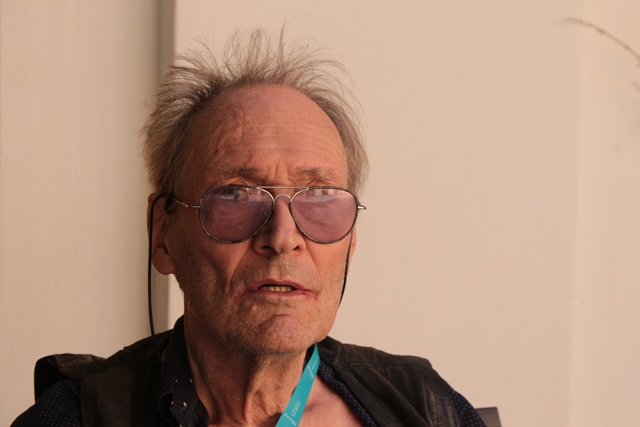
Of course it is but they probably don´t know that.
Is it still the same in German cinematography but nobody talks about that or it changed since that time?
Honestly I don´t know and I don´t care. I am writing film theory for many years, it´s hundreds of pages and it will be finished one day. I am writing novel which will come out one day so I am not in contact with German film. I go to movies but I am not in contact with the scene. After this film, I just had enough of filming and shut the door behind me,
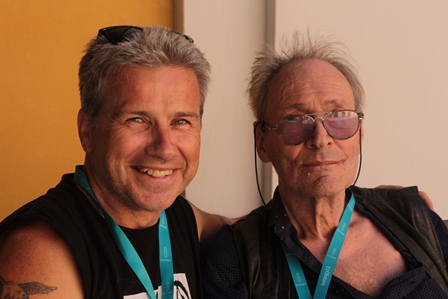
No I didn´t.I felt I am German.I could have got everywhere I wanted I was living in USA but once you loose it in your heart you can´t do it. And I had enough of filming and I knew I have to move on so I started teaching in many film schools which I love. I was writing film theory. I was writing that novel which is very revolutionary love story. Again I did what I wanted and felt like doing.


